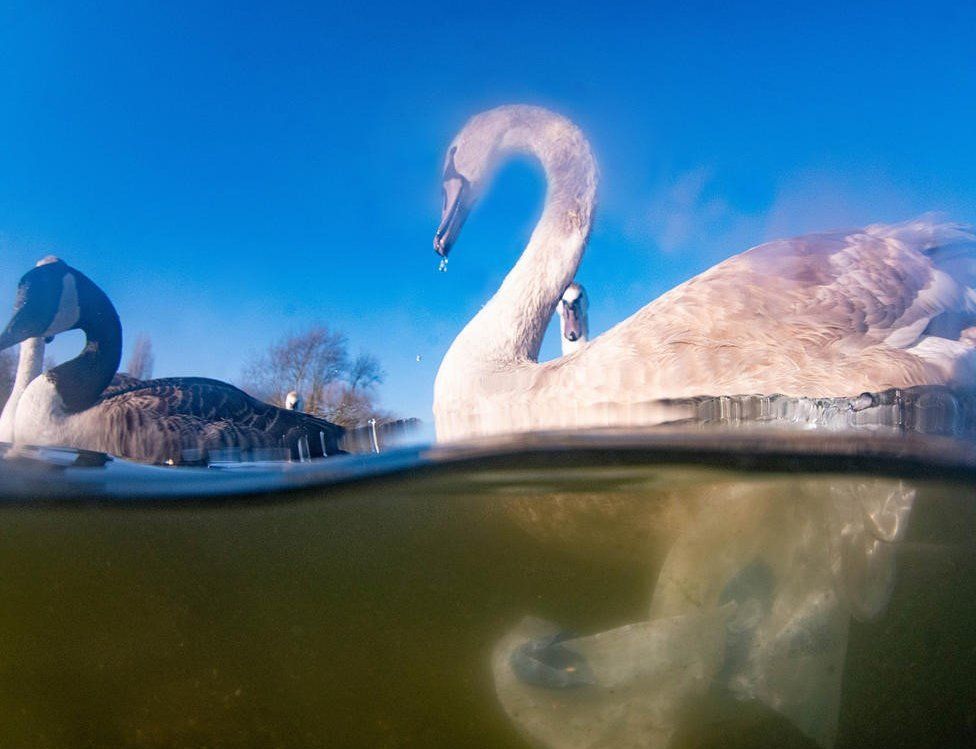River Mersey 'most polluted' with microplastics in UK
- Published

The River Mersey is more polluted with microplastics than any other river in the UK, claims a study into the problem.
Greenpeace said it was worse than the "Great Pacific garbage patch", with 875 pieces found in 30 minutes.
The environmental group said its survey, which showed all UK rivers contained small particles of plastic, should be a "government wake-up call".
The Environment Agency (EA) said it "knows there is more to do".
Microplastics are tiny plastic pieces under five millimetres long. They can be eaten by filter-feeding animals and passed up the food chain.
The Greenpeace study backs up scientific research published last year which found "microplastics everywhere".
Greenpeace said it sampled the following rivers:
- Exe
- Thames
- Severn
- Great Ouse
- Trent
- Mersey
- Aire
- Derwent
- Wear
- Conwy
- Wye
- Clyde
- Lagan
A total of 1,271 pieces of plastic ranging from fragments of straws and bottle tops to tiny microbeads - less than 1mm across in size - were caught, it said.
The highest concentration was in the River Mersey which Greenpeace claims made it "proportionally more polluted than the great Pacific garbage patch".
The eastern Pacific, where circular currents have concentrated plastic in one large area, is considered to be one of the most polluted places on Earth.
Prof Jamie Woodward, from the School of Geography at the University of Manchester, said Greenpeace's analysis supports its research which showed microplastics in the river bed sediments in the Mersey catchment was "higher than in any other environment".
Greenpeace said it discovered microbeads in five rivers, despite a partial UK-wide ban on their use which came into effect in 2018.
It also found plastic pellets known as "nurdles" - which are used in the production of plastic products - in seven rivers.
The highest levels of both were in the River Mersey, it said.
"This study is a wake-up call for the government," said Fiona Nicholls, from Greenpeace.
"We need to see bold new plastic reduction targets... and aim to at least halve single use plastic production by 2025."
The EA said: "We know there is more to do, which is why we are funding ground-breaking research into how microplastics enter waterways and working with the water industry to find new methods to detect, measure and remove microplastics from wastewater."
- Published12 March 2018
- Published3 June 2019
- Published5 April 2018
- Published7 September 2018
- Published15 March 2018
- Published22 March 2018
- Published21 March 2018
- Published5 June 2019
- Published16 April 2019
- Published10 December 2017
- Published17 March 2020